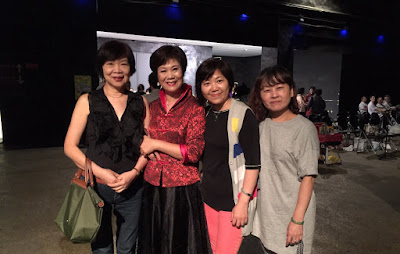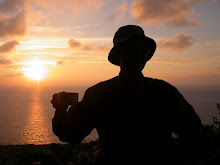#2016-1020
調笑令〈追科技〉
科技,科技,眾人瘋迷遊戲。手機出入相隨,虛擬時空緊追。追緊,追緊,見怪急抓可蠢!
圖/文: Mookoo Liang
= = =
This is the first
ci (詞 a form of Chinese lyric poetry) which I've just composed by following the
ci-rules introduced in the book
Bai Xiang Ci Pu (白香詞譜), originally edited by Shu, Meng-lan (舒夢蘭) in the Qing dynasty and newly annotated by Qingyun Liu (劉慶雲).
Lyric poetry is mostly written in a simple and direct style, and usually expresses personal emotions such as love (for example, 調笑令〈宮詞〉 by 王建 in the Tang dynasty). But, instead of focusing on romantic feelings, I used 32 Chinese characters (words) in the above poem 調笑令〈追科技〉 to describe, and comment on, the fact that innumerable people at the present time are indulging themselves in games of virtual reality -- by means of a cell-phone, an iPad, or a computer!
Yesterday I started to go with Jean to a Classical Literature Reading Club -- simply called
Dushu Hui 讀書會 in our language. The club's regular meetings had been and will be continually hosted on Wednesday afternoon by Ms. Meiyu Chen at her dwelling place. With her guidance, both Jean and I had a wonderful time yesterday afternoon, reading and studying such poetic pieces as Li Yu's
Yi Jiang Nan (憶江南) and
Xiang Jian Huan (相見歡). I believe that all other participants in the meeting, who have now become our "mutual" friends, also enjoyed this reading-singing-studying lesson very much too. Well, it was right after my first meeting with them that I thought of writing a
ci or something. And here it is: my first piece of "creative work" to share (see above)!
































































